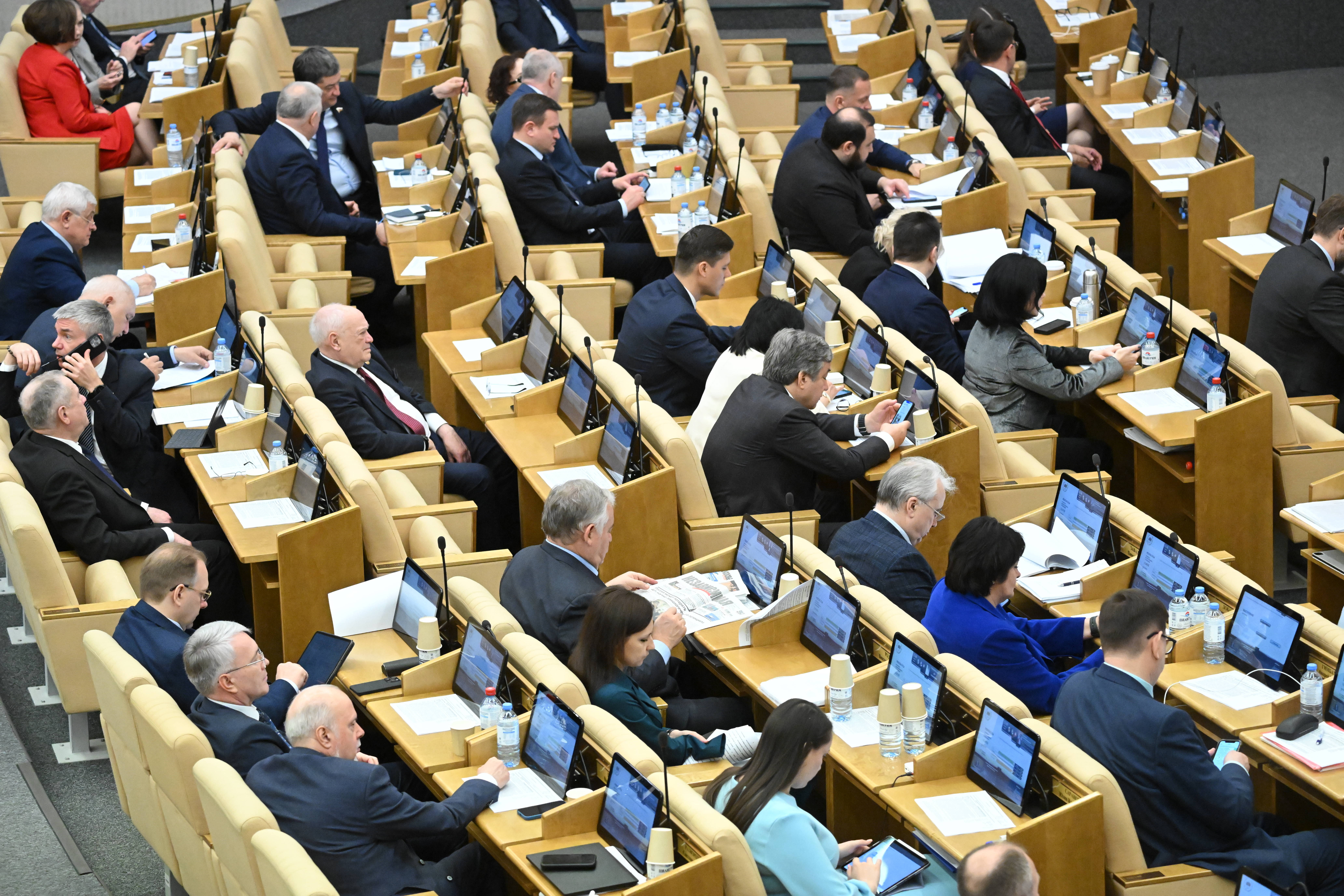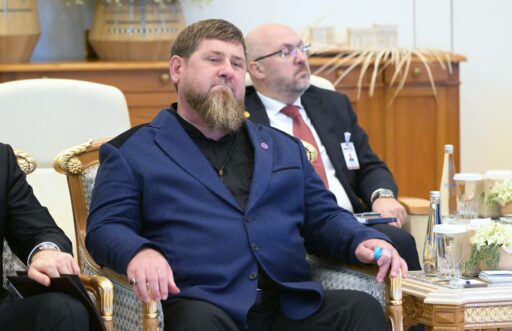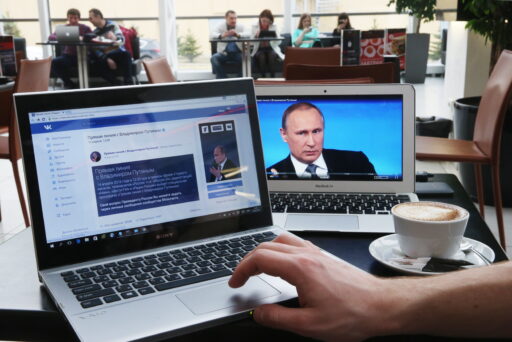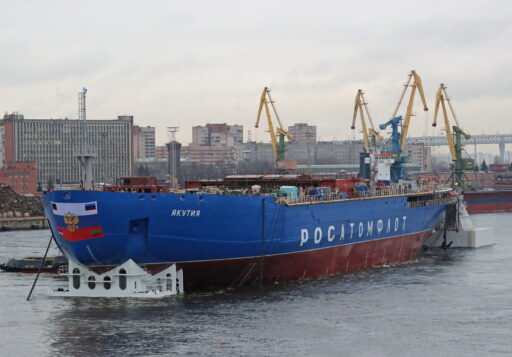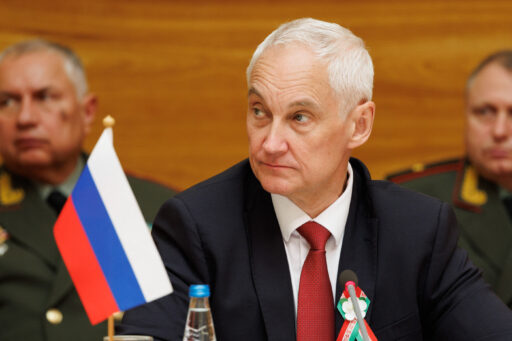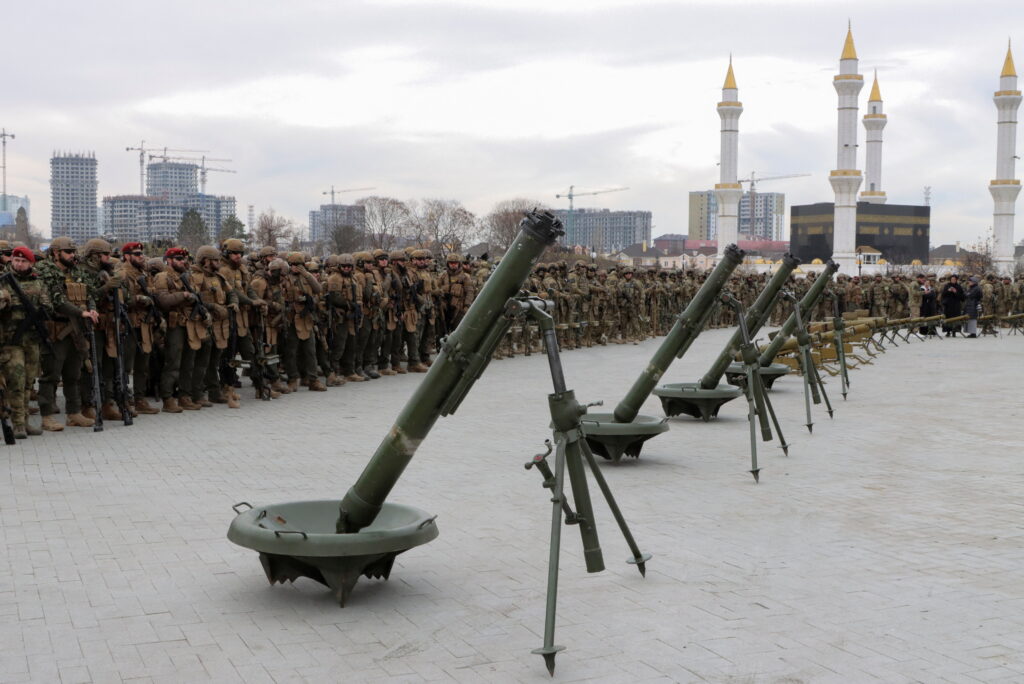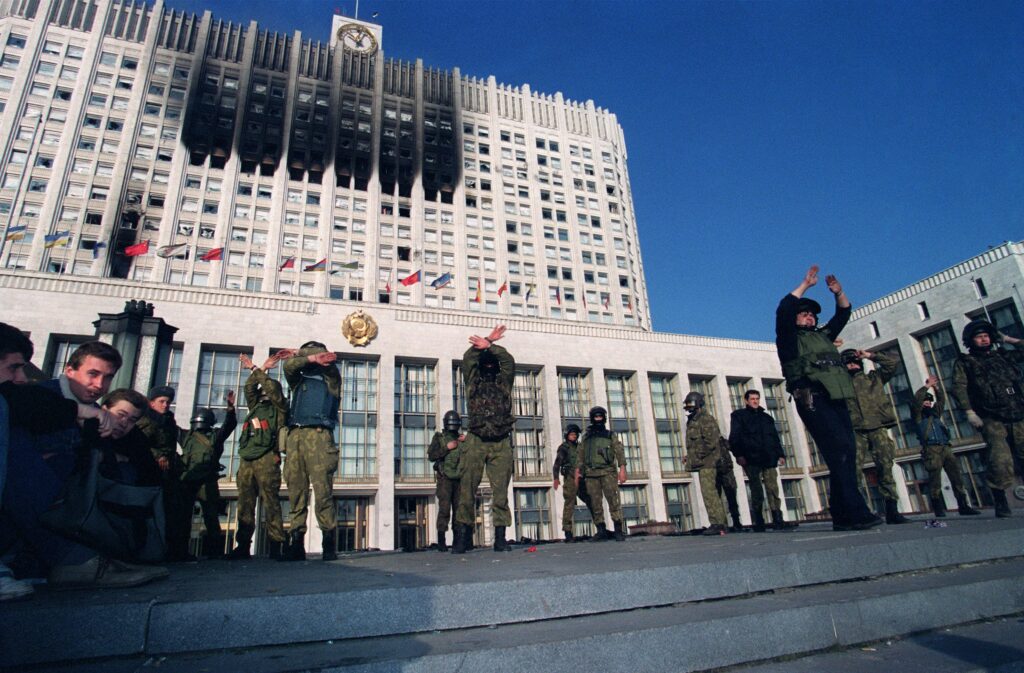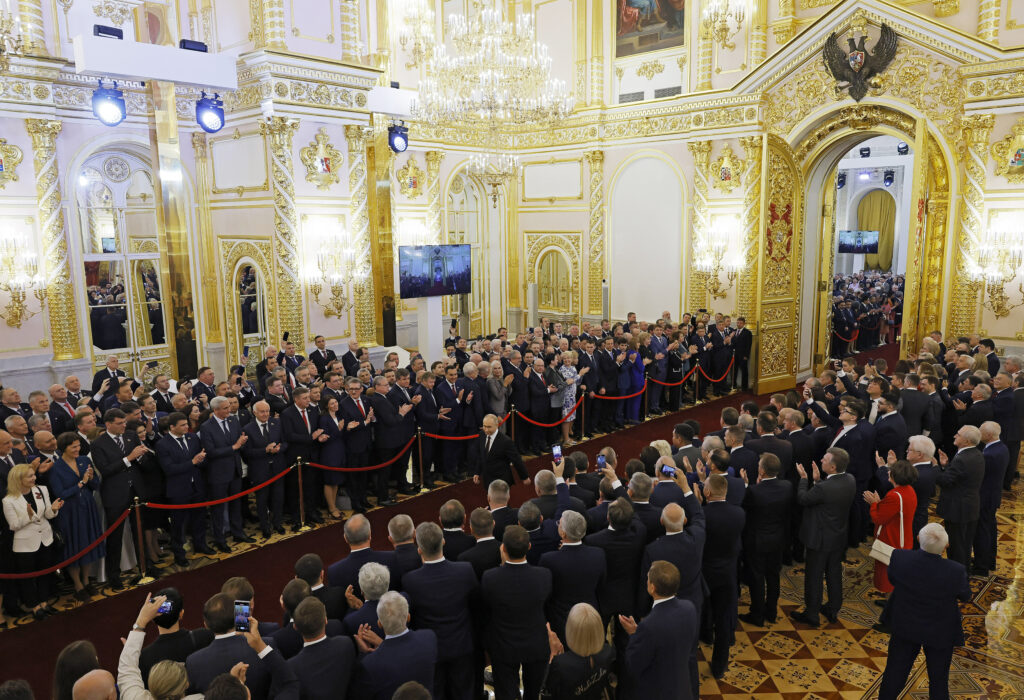The results of the presidential campaign in Russia raise questions about the future of the country’s party system in its current form. For the first time in recent Russian political history, none of the parliamentary candidates won more than 5 per cent of the vote (at least, not according to official results). This means that the party machinery for mobilising core supporters are virtually inoperative. For a while, the Kremlin will keep it «on life support» by allocating quotas to parties in federal and regional parliaments. But if Putin’s regime is preserved, the current party system will inevitably be transformed into something new. It could be replaced by a quasi-two-party structure with a dominant party of power and a left party based on the remnants of the Communist party and «A Just Russia». The scenario of a single pro-Putin bloc with «United Russia» party in the centre and niche pseudo-parties on the periphery is also likely.
History of governance
The Russian party system has long been largely controlled from the Kremlin. As early as the late 1990s, the political bloc of the presidential administration, which at the time was headed by Vladislav Surkov, influenced and even created decision-making processes in the systemic parties. For example, «A Just Russia» party was born in the mid-2000s as an artificially grown «social-democratic» project, a brain child of the presidential administration. «Rodina» appeared around the same time as a controllable national-patriotic alternative to the communists (CPRF). In 2020, with the help of the administration’s political bloc, the «New People» party was created to cater to the «urban electorate». The «old» parties have long been ready to make concessions and deals with the presidential administration. As early as the 1990s, Zhirinovsky’s Liberal-Democratic party (LDPR) voted in favour of government initiatives such as the approval of the budget or the appointment of the prime minister. The CPRF was able to publicly oppose the Kremlin, but on the most sensitive issues it always met its demands. In the 2004 presidential election, which was important for the construction of the power vertical, the Communist Party did not nominate its leader, Gennady Zyuganov, as a presidential candidate, but instead chose Nikolai Kharitonov (previously a member of the Agrarian party, the very same Kharitonov who ran in this year’s presidential election). The presidential administration wanted to show the public that there was no alternative to Putin and that a very high percentage of voters supported him. At the time, the authorities did not do a very good job of rigging the election results, so the president needed the weakest possible sparring partners. The Kremlin was prepared to tolerate the Communists’ refusal to support the draft budget or the prime ministerial candidates because, thanks to the «United Russia» majority in the State Duma and Zhirinovsky’s malleability, the Communist Party’s votes had no impact on the Duma vote. Against this background, the presidential administration still tried to weaken the CPRF by making it more pliable, trying to split it and employing a wide range of spoiler tools against the party («Communists of Russia», the Party of Pensioners, etc.).
In 2011, «A Just Russia» and the CPRF sought to capitalise on the all-round wave of protests and briefly got out of control. They supported the Bolotnaya and Sakharov protests. High-profile representatives of the Communists and of «A Just Russia» party spoke at these rallies and addressed the crowds. But in 2012, after Putin won the next election, the Kremlin began to tighten the screws and the systemic opposition gave up. MPs began to vote in favour of prohibitive, repressive laws, and in return the parties received gubernatorial posts for candidates coordinated with the presidential administration. Later they were also allowed to win inn single-mandate districts for the 2016 and 2021 Duma elections. The start of the full-scale invasion further strengthened the loyalty of the parliamentary opposition to the Kremlin. The CPRF, LDPR and «A Just Russia» all enthusiastically supported the war. «The New People» party tries to avoid that subject but they do not openly criticise Russia’s full-scale invasion of Ukraine, just as they do not criticise any other major initiatives undertaken by the government. Representatives of the systemic opposition have not criticised Putin for a long time, and recently they have also stopped criticising key government officials.
Losing one’s face
With their growing loyalty to the Kremlin, the systemic parties are naturally losing the support of their supporters. People do not understand why they should vote for former favourites when these parties constantly pledge allegiance to Putin and endorse his policies. The so-called «protest electorate», those who did not support Putin’s regime, used to vote for the Communists as a kind of sublimation of the now abolished «none of the above» box, but they no longer do so. Such voters are mostly in favour of ending the war and moving on to peace talks, and they simply cannot support a militant Communist Party. «A Just Russia» vacillated between social democracy and ultra-patriotism, eventually losing the moderate left-wing voters it had long catered to. The LDPR has lost its main asset — its founder and leader Vladimir Zhirinovsky died in 2022. The Liberal Democrats have never had a clear ideology or party line to begin with: the party’s popularity was based on Zhirinovsky’s populist charisma. The party’s new leader, Leonid Slutsky, who was actually appointed from above/handpicked and dropped on their heads from above by the presidential administration, can be best described as an anti-Zhirinovsky. Slutsky has no rhetorical or political talents and he is not adept at navigating the murky depths of court intrigue. The new leader’s entourage was unable to come up with a new ideology for the party. As a result, Zhirinovsky’s name remains the main element of the LDPR’s campaign in the regions and even in the presidential elections. Of course, the party will not be able to use the legacy of its deceased founder for too long. The «New People» party was able to promote itself thanks to the voters’ demand for fresh faces and forces, but in four years the party has not been able to outline a clear platform or ideology. The party tries to speak from moderate positions, but does not dare to cross the red lines drawn by the Kremlin.
The utter loss or lack of face is the result of the parties’ own malleability, their eagerness to compromise and please the Kremlin, and the influence of the presidential administration. For example, the nationalities question has always been a taboo subject for the systemic forces. They could come up with very general slogans (such as the LDPR’s «We are for the poor, we are for the Russians»), but nothing more than that. The same general platitudes were usually spoken by representatives of the authorities. In the early 2000s, the leadership of the «Rodina» party tried to promote the nationalist agenda at its own risk, but quickly paid the price: the party was dismantled and merged with «A Just Russia». Targeted criticism of Putin and his inner circle is another taboo subject. With the outbreak of the full-scale invasion, another taboo emerged: criticism of the war. Criticism of the government and the top officials is also becoming a new taboo. Under these conditions, the systemic parties who want to remain part of the system simply have no way of showing their true political «face». The specific agenda promoted by the Communists is their orientation towards Stalinism, but it tends to repel large swaths of the pro-communist electorate. This «Stalinist» face or identity chosen by the Communist party suits the presidential administration quite well. The loss of face, of distict political identity and the consequent loss of voters is primarily the fault of the parties themselves and their leadership.
Glass ceiling
In many respects, the staffing policy of the systemic parliamentary parties copies the staffing policy within Putin’s power vertical. The leaders of the CPRF, LDPR and «A Just Russia» parties seek to undermine the charismatic figures within their own parties, preventing internal competition and even a possible change of leadership. For Gennady Zyuganov, Sergei Mironov and the late Vladimir Zhirinovsky, personal power and personal interests have always been more important than the competitiveness and future of the political structures they headed for so many years. Within the CPRF, charismatic members have always been pushed away from the federal leadership positions because they posed a threat to the faceless Soviet-era apparatchiks at the top. The Communist party leadership also carried on a fight against the most active and viable regional branches headed by charismatic leaders. For example, in the late 1990s and early 2000s, the Communists orchestrated a real purge of their own St Petersburg City Committee and then also of the Moscow Committee, the latter headed by a former military officer and scientist Vladimir Ulas. Ulas tried to cooperate with various political forces, including non-systemic ones, and he managed to seriously improve the Communist Party’s standing in Moscow. In the aftermath of the purge, the St Petersburg and Moscow branches lost their charismatic leaders and joined the general family of «grey, faceless obkoms.» Ironically, it was Valery Rashkin who spearheaded these purges, a State Duma deputy from Saratov, whom many Communists regarded as an old Soviet apparatchik, extremely loyal to Gennady Zyuganov. In the 2020s, Rashkin himself, who had by them gained decent political experience and was a lively and colourful figure, particularly if viewed against the background of the party’s faceless and plain leaders, was subjected to a purge.
Sergei Mironov, the leader of «A Just Russia» party, managed a conglomerate of fairly colorful regionalists, but prevented any of them from becoming strong enough to lead the party. Mironov was able to do this because he and Putin go back a long way, to the old days in the St Petersburg mayor’s office and the city legislature. Vladimir Zhirinovsky deliberately built the party apparatus on the principle of personal loyalty, handpicking young people who he personally liked. These «Falcons of Zhirinovsky» had no ambitions of their own and were always satisfied with the comfortable jobs as MPs or members of the party apparatus. The heads of the regional branches were quite happy with LDPR’s franchise model and had no ambitions to lead the party. Paradoxically, the «New People”‘s staffing policy is somewhat reminiscent of the LDPR’s in Zhirinovsky’s time. The party’s MPs were personal acquaintances of the party leader Alexey Nechayev, graduates of his «Captains» training programme for young businessmen, and ‘franchisees’ from the regions with links to local authorities. Most of the regional branches are run by these ‘captains’, graduates of Nechayev’s educational project. The exception that proves the rule is the former mayor of Yakutsk, Sardana Avksentyeva, the most prominent figure in the «New People» party. In the four years that the party has been in existence, no similar figures have appeared in the party’s ranks.
Predictably, this staffing policy has led to a severe shortage of cadres within the parliamentary parties who could act as party ambassadors at federal and regional level and command respect. Naturally, this also leads to a loss of popularity for the systemic opposition.
The policy of the presidential administration
The political bloc of the presidential administration is interested in preserving a number of more or less predictable systemic parties because it has no other interface for dealing with the discontented. On the one hand, the Kremlin interfered in the inner workings of the parliamentary parties when the situation demanded it, and on the other, it did not react in any way to the degeneration of the staffing policies within the parties. At a certain point, this was advantageous for the vertical of power: the political bloc was used to interacting with the same familiar figures who posed no threat to Putin. In the event of a real intra-party struggle, alternatives to the incumbent president could emerge within the systemic forces. The parties’ overarching loyalty to the Kremlin and their willingness to respect all the new taboos also worked in the Kremlin’s favour. The political bloc of the presidential administration could set new records for Putin and the ruling «United Russia» party in terms of seats won in the parliament and official percentages of votes cast in their support. The purges in the regional branches of the systemic parties also helped the power vertical: they eliminated the threat of potential rivals to Kremlin governors and «United Russia» mayors.
In this form, the machinary of «managed democracy» could only further degenerate. The widespread cancellation of mayoral elections and the strict regulation of the so-called ‘municipal filter’ in gubernatorial elections further exacerbated this deterioration. At some point, charismatic figures within the systemic parties popular with the local public could still move to official positions and retain their influence on the electorate (this is what happened, for example, with the Communist Anatoly Lokot’, a long-time mayor of Novosibirsk, or Sergei Levchenko, the former governor of Irkutsk from the CPRF, not to mention the former governor of the Khabarovsk Krai from the LDPR, Sergei Furgal). But this option is off the table now. The leadership of the systemic opposition parties is not only reluctant to offer prized positions to the ambitious members of these parties or to those who would like to join their ranks, It is simply no longer in a position to do so.
The presidential administration needs this quasi-party system and the illusion of at least some democracy. These are the controlled channels for letting off steam, without which the potential protest can spin out of control. Moreover, the very structure of the controlled multi-party machine is familiar to Putin, who in his old age does not like to change habits and wants to operate within the familiar political landscapes around him. The systemic opposition is part of that landscape. Therefore, the presidential administration will try to preserve this degraded system in at least some form.
Two paths
It is clear that the ranks of the systemic parliamentary opposition will see some losses. «A Just Russia» party has already fallen below the 5% rating needed to secure seats in the State Duma and its poplarity is unlikely to grow. The party pushes away charismatic moderate regionalists (such as Oleg Shein) and is also beginning to reject the «ultra-patriots» artificially transplanted to its soil, such as Zakhar Prilepin and his entourage. Sergei Mironov’s party offers its potential voters nothing but support for the war, but it has to share this pro-war electorate with the much more popular «United Russia» party, while the pro-war rhetoric does nothing but repel protest voters. It is likely that in the foreseeable future Sergei Mironov, the leader of «A Just Russia», will take up a post in the Federation Council by way of a final honourable retirement, while the prominent members of his party, who have some resources, will scatter to other parties. The future of the LDPR also looks bleak: it will be even more difficult to ride on Zhirinovsky’s charisma in the 2026 Duma elections. It is unlikely that within the next two years, the party (or the political bloc of the presidential administration that closely monitors it) will be able to find a new, promising image and ideology as well as a new leader equipped with public policy skills. Breaking the five per cent barrier will be an almost impossible task for the Liberal Democrats, although the presidential administration may «gift» the LDPR a few extra percent to at least keep it in the new parliament. In any case, in the next couple of years, Zhirinovsky’s party will cease to exist as a force of any significance.
The CPRF, too, will soon face a leadership problem: Gennady Zyuganov is about to turn 80 this year and will no longer be able to campaign as actively as before. Most likely, the Communist Party will be led by its first deputy chairman, Yuri Afonin. It is clear that this figure is unlikely to inspire even the most devoted of CPRF’s voters. But there are simply no politicians in the Communist Party who are both promising and loyal to the Kremlin who could become an alternative to Afonin. As a result, the CPRF, like the LDPR, will soon be close to the 5% threshold that guarantees entry into the Duma. The popularity of the «New People» party will also fluctuate around these percentages: it is unlikely that the party’s leadership will suddenly turn into charismatic figures who naturally attract popular attention. In the end, it may well turn out that for objective reasons (both in terms of ratings among loyalists and the use of administrative resources) only the «United Russia» party will be able to enter the State Duma. Those Russians who do not support it will simply have no one to vote for. A significant part of society will lose their parliamentary representation. People will be left with only one option — to take to the streets, which is likely to happen in these circumstances. The political bloc of the presidential administration will do its best to avoid this scenario at all costs, so we can expect a revamping of Russia’s party system.
One of the two possible ways forward is to create a manageable two-party system, with a broad party of power, including moderate figures from the «New People» party, on one side, and a «party of the past» based on the Communist Party with Afonin at the helm (thoroughly controlled by the political bloc), on the other. The public will be given the illusion of a struggle between these two forces. This option is quite risky for the regime: in times of crisis, the «second» party can be used by disgruntled elite groups as a tool to seize power. This second party itself may also feel its strength and try to really oppose the government at least in some respects.
The second option is to turn the State Duma into a kind of Civic Chamber (CC). Quotas for CC membership are allocated artificially by the authorities themselves on the basis of the Kremlin’s ideas about popular social movements (however, the place of really popular ones has long been taken by people and movements loyal to the regime). The presidential administration will support the functioning of this artificial organism by issuing quotas for the distribution of seats in it. This quota can follow two models. The Kremlin applied the first one in the annexed territories, where it gave parliamentary parties the percentages required to overcome the entry threshold and allocated one seat to each of them. But this scheme looks too artificial and is fraught with a complete loss of any sense of legitimacy and, consequently, may also trigger public protests. A softer version of the quota system will be used in the Moscow City Duma elections: its future members will only be elected in single-mandate districts, and the mayor’s office will give each system party a district where they are guaranteed to win. This option implies representation, but does not give the impression of manipulated numbers. In order to proceed with this scenario, the regime will have to change the scheme for forming the State Duma, and there is less and less time to do so. However, the Kremlin will not be able to avoid redesigning the system as a whole: the mechanism is too worn out to preserve it as it is.
